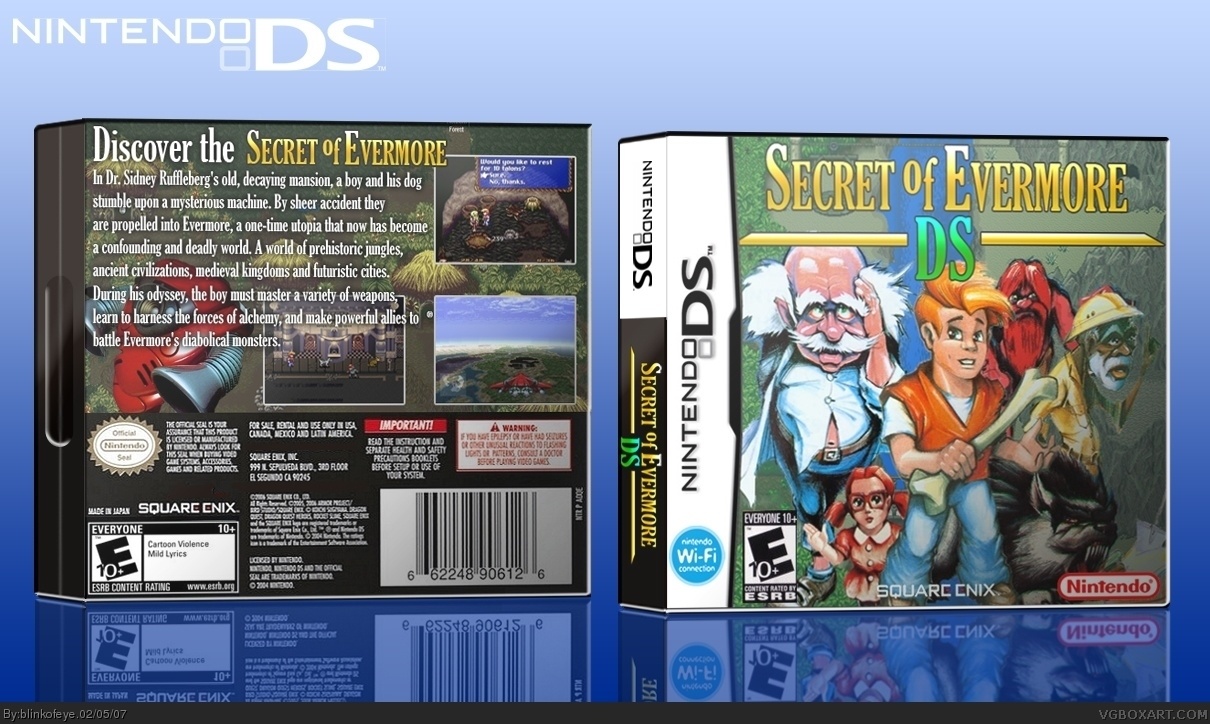


He pushed the SNES's hardware limitations to their absolute limit, creating a soundtrack that was like nothing else at the time. Soule's score for Secret of Evermore was infused with the ambient noises of the jungles, cities, and markets of Evermore. Secret of Evermore was the first game in Soule's career before he graduated to bigger gaming franchises, including The Elder Scrolls series, Guild Wars, and Icewind Dale. The story for Secret of Evermore would change a few times during the course of the game's development before it finally settled on a young boy transported from his small town of Podunk, USA to the strange and wildly changing world of Evermore.Īt the age of 19, Soule sent an orchestral demo to the SquareSoft office in the hopes of getting work. How they went about it was up to them as long as it hit that specific criterion. Their goal? To further break into the Western gaming market with a video game that felt and played like a traditional Japanese RPG, but designed in a way to appeal better to American audiences.Īnd who better to develop this new game than the people who had already been localizing their games for the US?Īccording to a 2008 interview by the game's lead programmer, Brian Fehdrau, the company received a simple directive from their parent company: make an American-flavored Secret of Mana-like game. Related: The 4 Best Super Nintendo JRPGs After All These Years, Ranked Both companies were Japanese, which meant that most video games for their platforms were created by Japanese companies for Japanese audiences.Īround that time, someone at Square-who had seen the success of titles like Secret of Mana and the Final Fantasy series in the US-decided to make a grand experiment. There were only two major console gaming companies at the time: Nintendo and SEGA. Secret of Evermore has come to occupy a unique place in video game history as the only JRPG developed by an American company with Western audiences in mind from the very beginning.


 0 kommentar(er)
0 kommentar(er)
